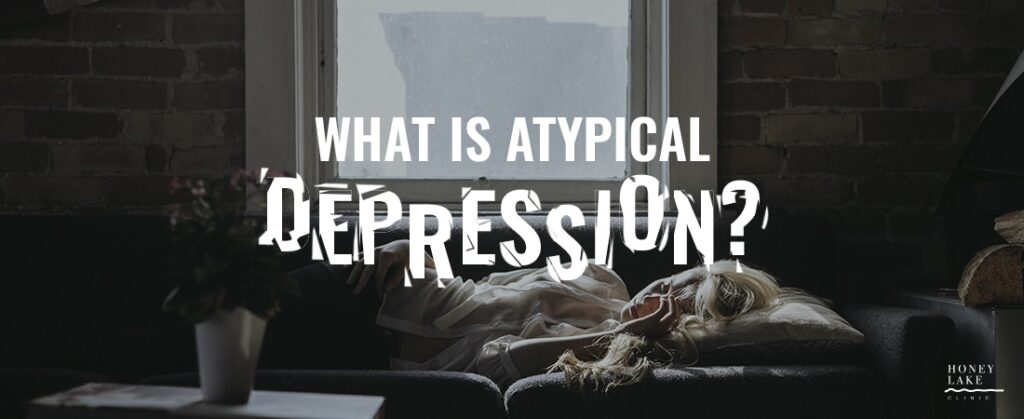What is Atypical Depression?
Despite its name, atypical depression is not uncommon. What is atypical depression?
Whereas those suffering other forms of major depression usually don’t eat, can’t sleep and cannot break their sadness, those experiencing depression with atypical features—atypical depression—may eat too much, sleep too much, and can be happy at times.
Atypical depression is a type of major depression. If you suspect you or someone you love is suffering with atypical depression, we understand. We’re here to help.
What does atypical depression look like? One of the main characteristics is that it distinguishes itself from melancholic depression in mood reactivity. The person with atypical depression can see his or her mood improve if something positive happens. In melancholic depression, positive changes will seldom bring on a change in mood.
It looks atypical. If you were to contrast it with Winnie the Pooh’s friend Eeyore, whose every waking thought is ‘Oh, woe is me,’ those with atypical depression may start the day depressed, but things can look up a little as their day unfolds.
–Dr. Karl Benzio, Co-Founder and Chancellor, Honey Lake Clinic and Director of Excellence in Christian Psychiatry, Honey Lake Clinic
The diagnostic criteria for atypical depression calls for at least two of the following symptoms included with that atypical mood reactivity—
- Sleeping too much (hypersomnia)
- Increased appetite or weight gain
- Having a more intense reaction or increased sensitivity to rejection, resulting in problems with social and work relationships
- Having a feeling of being weighed down
Atypical depression may occur as a feature of major depression or of mild, long-lasting depression. Symptoms of atypical depression may overlap with other subtypes of depression, such as melancholic or anxious distress depression. Like other types of depression, atypical depression is a serious illness that can cause major problems. Atypical depression can result in emotional, behavioral and health problems that affect every area of your life. For example, atypical depression can be associated with:
- Weight gain due to an increased appetite
- Personal and work relationship problems due to rejection sensitivity
- Drug or alcohol use due to trouble coping
- Other mental health disorders such as anxiety
- Suicide from feelings of depression
A specific cause of depression has not been identified. Its recipe includes many ingredients. A person’s genes, brain chemistry, life experiences, and psychological and spiritual health can all be contributing factors.
Atypical depression can be successfully treated, and many who suffer are cured. With proper care, symptoms can be alleviated, allowing you to concentrate, think, and develop the spiritual and psychological skills to live beyond depression.
Your health: mind, body and spirit—
At Honey Lake Clinic, our entire staff of doctors and therapists strongly believe that faith-based treatment, encompassing spiritual, physical and mental health, will provide you with the long-lasting tools and knowledge to live beyond depression. Let us help and encourage you.



